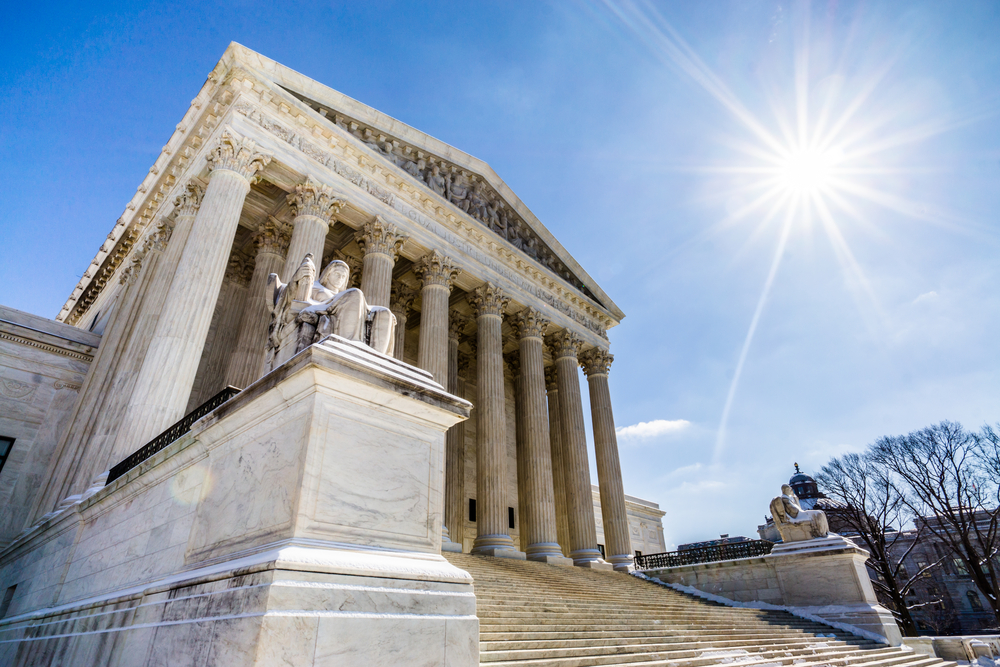The United States Supreme Court asked President Joe Biden’s administration on Dec. 13 for its opinion on whether they should hear a landmark product liability case against pharmaceutical giant Bayer.
The company’s best-selling herbicide, Roundup, has been under fire since 2018 for its link to cancer, specifically non-Hodgkin’s lymphoma (NHL).
Bayer has already paid out more than $10 billion to settle approximately 80% of 125,000 claims. Plaintiffs allege that using Roundup – which the U.S. Environmental Protection Agency (EPA) maintains is safe – gave them NHL and other cancers and that Bayer failed to warn of the cancer risks adequately.
Three plaintiffs have already won over $100 million combined in trials against Bayer, each of which the drugmaker unsuccessfully appealed. The Supreme Court’s decision would be on one of the three, wherein California man and regular Roundup user Edwin Hardeman was awarded $25 million in damages after developing non-Hodgkin’s lymphoma.
Hardeman says he used Roundup from the 1980s through 2012 on his large piece of land and was diagnosed with non-Hodgkin’s lymphoma in 2015.
The original ruling was upheld by the U.S. Court of Appeals for the 9th Circuit, which applied the California state “failure to warn” law in federal court.
Bayer is counting on the conservative and pro-business Supreme Court to rule in their favor. However, last July, Bayer set aside an additional $4.5 billion provision in case the Supreme Court declines to hear the case or rules against them.
U.S. Solicitor General Elizabeth Prelogar will file a brief announcing whether the Biden administration believes the dispute worthy of the justices’ time sometime in the next few months.
The Supreme Court’s request to Prelogar is an indication that at least some justices are interested in hearing the case. Four or more must agree to a formal review.
What Is Bayer’s Argument in the Potential Supreme Court Case?
The International Agency for Research on Cancer (IARC), part of the World Health Organization (WHO), decided in 2015 that glyphosate, Roundup’s active ingredient, is “probably carcinogenic.” Later, it was revealed that the IARC had omitted findings supporting the opposite, but a lot of independent research has found credible links between glyphosate and cancer. One meta-analysis of several studies found that Roundup increases cancer risk by 41%.
Despite the growing amount of research supporting this hypothesis, the EPA has always maintained that Roundup is safe if used according to the label’s instructions. In fact, it even banned California from putting a cancer warning on the product and stated in 2019 that doing so would be “false and misleading.”
The EPA’s opinion is the basis of Bayer’s argument. They argue that the California state failure-to-warn law should be overridden by federal law, the Federal Insecticide, Fungicide and Rodenticide Act (FIFRA), which says states may not require labeling rules “in addition to or different from” those under federal law.
Bayer said that the 9th Circuit’s upholding means “a company can be severely punished for marketing a product without a cancer warning when the near-universal scientific and regulatory consensus is that such a product does not cause cancer, and the responsible federal agency has forbidden such a warning.”
Hardeman’s lawyers disagree, saying that the EPA’s declaration of glyphosate’s safety doesn’t take into account the “unique risks” when the chemical combines with Roundup’s other ingredients.
Despite its insistence that Roundup is safe, Bayer has announced that residential Roundup – but not commercial – will be replaced by a glyphosate-free formula in 2023.
Until a final decision is made, Roundup users who blame the pesticide for their cancer will continue to fight for justice.










